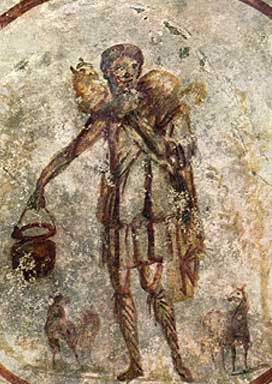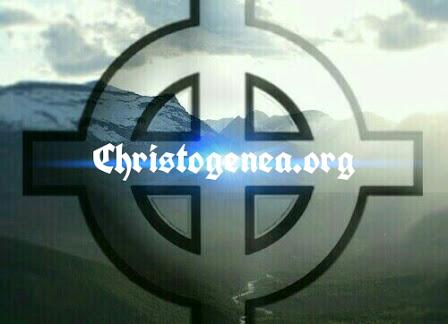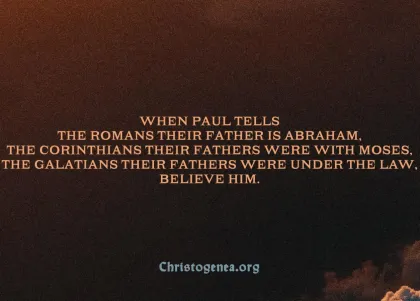A presentation of Born Under Contract, a paper written by Clifton Emahiser
Here we are going to present an article written perhaps 12 years ago by Clifton Emahiser, which is entitled Born Under Contract. This article aims to demonstrate that the promises made to the Old Testament patriarchs by Yahweh had confined all of their legitimate descendants under a covenant, which is essentially a contract, and that they themselves would have no choice in the matter. In the ancient world, a father had property rights and the power to make such life and death commitments over his offspring, and the offspring had no say in the matter. So, for example, Abraham had an inherent right to place his son Isaac on the altar and sacrifice him to the will of his God. Now, I said legitimate descendants, because the contract was accompanied by a law which forbade illegitimate descendants from reaping its benefits.
Here the sophists and scoffers may say something like, ‘oh, that is not true, the law was not given until Mount Sinai.’ However the Scripture proves otherwise. Abraham was chosen by Yahweh, as we read in Genesis chapter 26: “5 Because that Abraham obeyed my voice, and kept my charge, my commandments, my statutes, and my laws.” So a little more must have been given to Abraham than what the Scripture describes. The proof is in the fact that Abraham had every concern over who his son Isaac, who would inherit the covenant, would marry. This is found in Genesis chapter 24: “1 And Abraham was old, and well stricken in age: and the LORD had blessed Abraham in all things. 2 And Abraham said unto his eldest servant of his house, that ruled over all that he had, Put, I pray thee, thy hand under my thigh: 3 And I will make thee swear by the LORD, the God of heaven, and the God of the earth, that thou shalt not take a wife unto my son of the daughters of the Canaanites, among whom I dwell: 4 But thou shalt go unto my country, and to my kindred, and take a wife unto my son Isaac. 5 And the servant said unto him, Peradventure the woman will not be willing to follow me unto this land: must I needs bring thy son again unto the land from whence thou camest? 6 And Abraham said unto him, Beware thou that thou bring not my son thither again.” A generation later, Esau had disregard for this, and his mother made certain that it cost him his share in the inheritance of Jacob. She is recorded in Genesis chapter 27 as having exclaimed: “46 And Rebekah said to Isaac, I am weary of my life because of the daughters of Heth: if Jacob take a wife of the daughters of Heth, such as these which are of the daughters of the land, what good shall my life do me?” To this we see Isaac’s response, in Genesis chapter 28: “1 And Isaac called Jacob, and blessed him, and charged him, and said unto him, Thou shalt not take a wife of the daughters of Canaan.” So the patriarchs, and the matriarchs, were properly racists.





 Christianity in the Old Testament, Part 3, a continuing presentation of Bertrand Comparet's Sermon, with our own Commentary
Christianity in the Old Testament, Part 3, a continuing presentation of Bertrand Comparet's Sermon, with our own Commentary
 Christianity in the Old Testament, Part 2, a presentation of Bertrand Comparet's Sermon, with our own Commentary
Christianity in the Old Testament, Part 2, a presentation of Bertrand Comparet's Sermon, with our own Commentary
 Christianity in the Old Testament, Part 1, an Introduction: What is a Catholic?
Christianity in the Old Testament, Part 1, an Introduction: What is a Catholic?





 Please click here for our mailing list sign-up page.
Please click here for our mailing list sign-up page.







